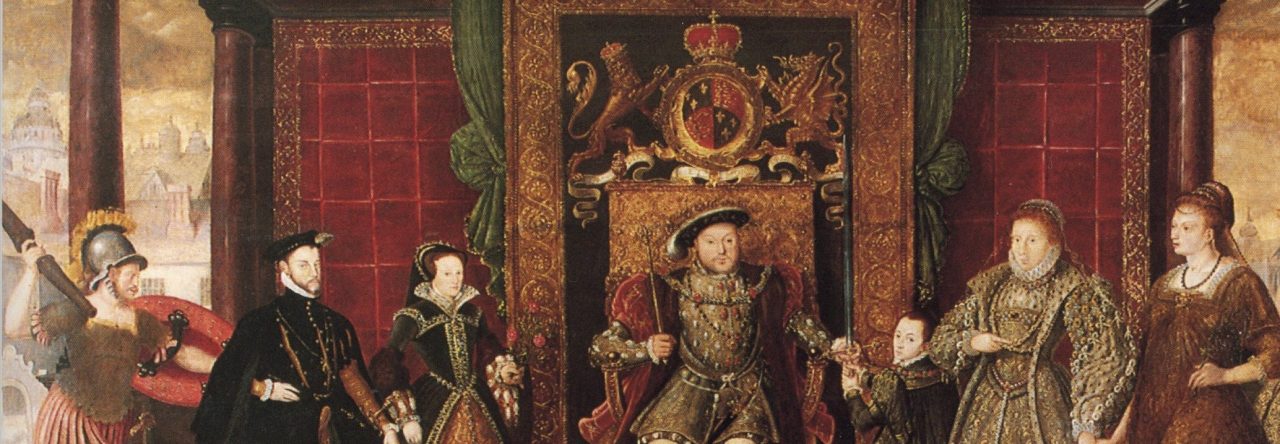The next poem I wanted to explore is an epitaph for Lady Katherine Knollys. I found this particular poem in Sarah- Beth Watkins’ book, “Lady Katherine Knollys: The Unacknowledged Daughter of King Henry VIII”. An epitaph was a poem written in memory of a person who died, in this case, Lady Katherine Knollys, the daughter of Mary Boleyn. There are some who believed that she was the daughter of William Carey, while others believed that she was, in fact, the daughter of Henry VIII. She was a lady in waiting for Queen Elizabeth I, as well as her cousin, so it makes sense that Elizabeth would have made such a big deal for her funeral in 1569.
This epitaph was written by Thomas Newton, who was a poet and a clergyman who lived from 1542 until 1607. His major works included translations of the works of Cicero and the Seneca’s Tragedies. This is important because as you read this epitaph, which is one of the few that survive from the 1560s, you will notice a blend of Christian images with Roman images, with the mention of the “Muses” and the “Graces”. It is a unique epitaph for a fascinating woman.
Epitaphe upon the worthy and Honorable Lady, the Lady Knowles
Death with his Darte hath us berefte,
A Gemme of worthy fame,
A Pearle of price, an Ouche of praise,
The Lady Knowles by name.
A Myrroure pure of womanhoode,
A Bootresse and and a stay,
To all that honest were, she was
I say both locke and kaye.
Among the Troupes of Ladies all,
And Dames of noble race,
She counted was, (and was indeede)
In Ladie Fortunes grace.
In favoure with our noble Queene,
Above the common sorte,
With whom she was in credit greate,
And bare a comely porte.
There seemde between our Queene and Death,
Contencion for to be,
Which of them both more entier love,
To her could testifie.
The one in state did her advaunce,
And place in dignitie,
That men thereby might knowe, to doe,
What princes able be.
Death made her free from worldly carke,
From sicknes, paine and strife,
And hath ben as a gate, to bringe
Her to eternall life.
By Death therfore she hath receivde,
A greater boone I knowe:
For she hath made a chaunge, whose blisse,
No mortall wight can showe.
She here hath loste the companie,
Of Lords and Ladies brave,
Of husband, Children, frendes and kinne,
And Courtly states full grave.
In Lieu wherof, she gained hath
The blessed companie
Of Sainctes, Archangels, Patriarches,
And Angelles in degree.
With all the Troupes Seraphicall,
Which in the heavenly Bower,
Melodiously with one accord,
Ebuccinate Gods power.
Thus are we sure: for in this world
She led a life so right,
That ill report could not distaine,
Nor blemish her with spight.
She traced had so cunningly,
The path of vertues lore,
Prefixing God omnipotent,
Her godly eyes before:
And all her dedes preciselie were,
So rulde by reason Squire,
That all and some might her beholde,
From vice still to retire.
The vertues all, the Muses nine,
And Graces three agreed,
To lodge within her noble breast,
While she in Earth did feede.
A head so straight and beautified,
With wit and counsaile sounde,
A minde so cleane devoide of guile,
Is uneth to be founde.
But gone she is, and left the Stage
Of this most wretched life,
Wherin she plaid a stately part,
Till cruell Fates with knife:
Did cut the line of life in twaine,
Who shall not after goe?
When time doth come, we must all hence,
Experience teacheth so.
Examples daily manifolde,
Before our eyes we see,
Which put us in remembraunce,
Of our fragilitie.
And bid us watch at every tide,
For Death our lurking foe,
Sith dye we must, most certainely,
But when, we do not knowe.
Som which today are lusty Brutes,
Of age and courage ripe,
Tomorrow may be layd full lowe,
By Death his grevous gripe.
Respect and parcialitie
Of persons is there none,
For King, or Kaiser, rich or poore,
Wise, foolish, all is one.
God graunt that we here left behinde,
This Ladies steppes may treade,
To live so well, to die no worse,
Amen, as I have saide.
Then maugre Death, we shall be sure,
When corps in earth is closde,
Amonge the joyes celestiall,
Our Soule shal be reposde.
Sources:
http://ebba.english.ucsb.edu/ballad/32409/xml
Watkins, Sarah-Beth. Lady Katherine Knollys: The Unacknowledged Daughter of King Henry VIII. Winchester, UK: Chronos Books, 2015.
https://en.wikipedia.org/wiki/Thomas_Newton_(poet)
https://www.westminster-abbey.org/abbey-commemorations/commemorations/katherine-knollys
